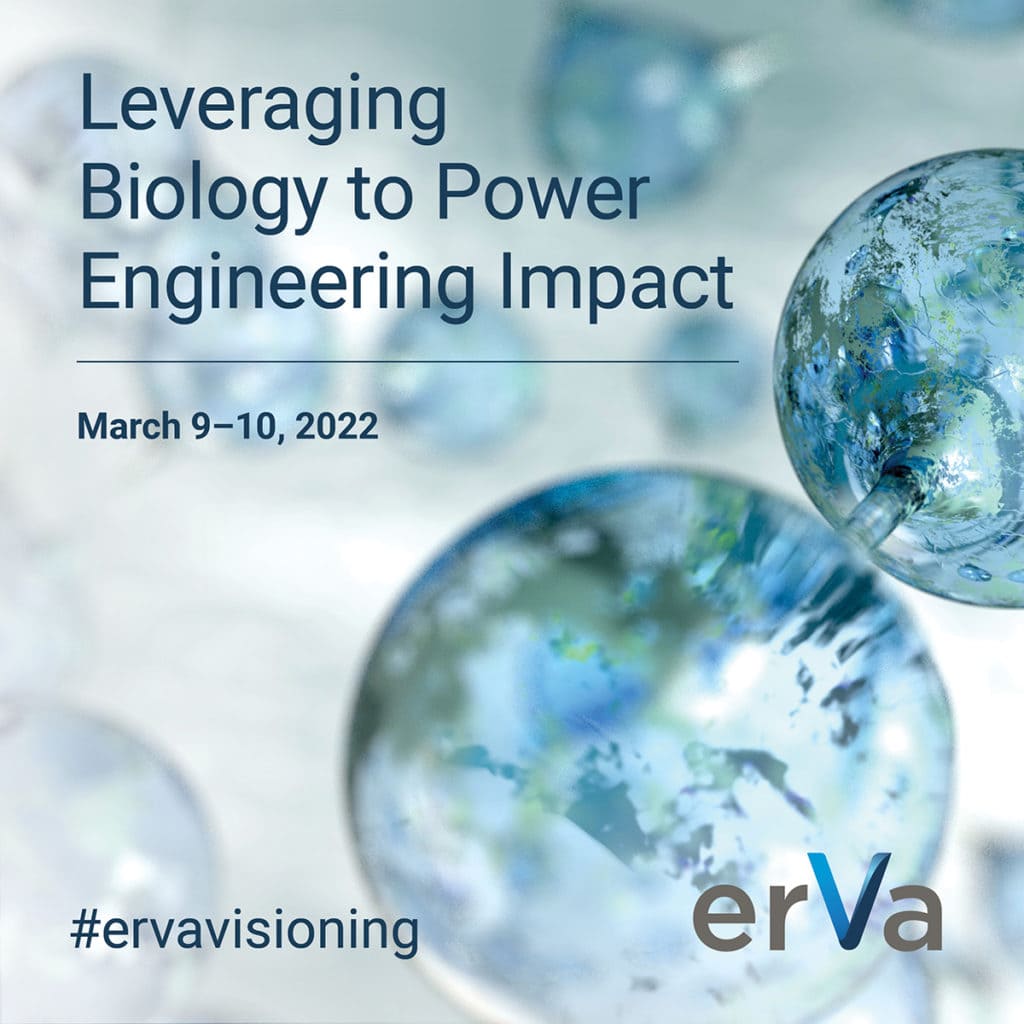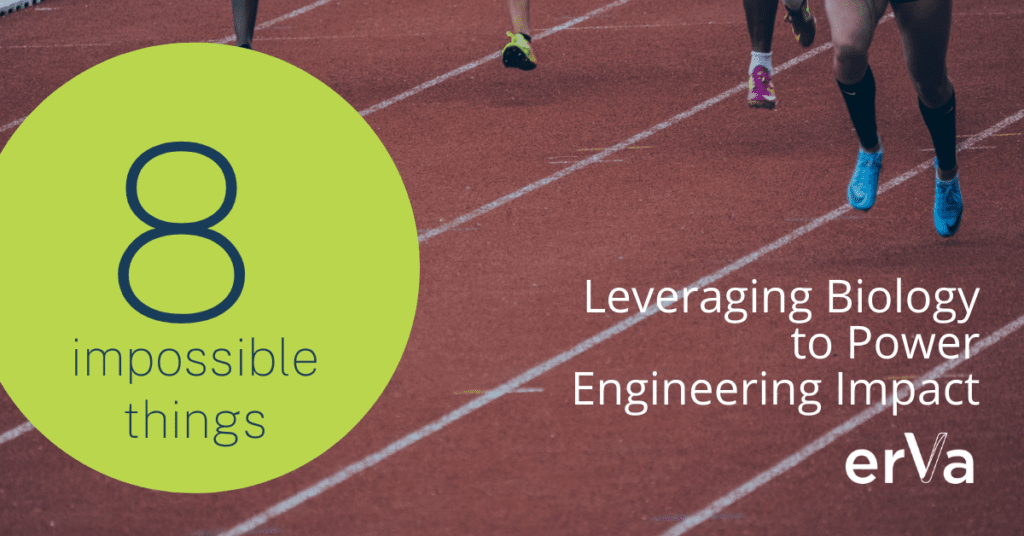NSF-funded initiative convenes nearly 100 technical experts to prioritize future research directions
March 10, 2022—The interface of biology and engineering holds the promise of transforming the future of health and medicine, agriculture, and high tech. Nearly 100 experts from academia, industry, and government sectors met for a virtual visioning event this week to identify priorities for research that apply engineering principles of design and analysis to biological systems and technologies. The event was convened by the Engineering Research Visioning Alliance (ERVA), a U.S. National Science Foundation-funded initiative.
“It’s really heartening to see a diverse group of interesting thinkers come together to question their assumptions and identify good new targets for fundamental research," said Jake Beal, engineering fellow, Raytheon BBN Technologies and co-chair of the event's Thematic Task Force.

The theme, “Leveraging Biology to Power Engineering Impact,” was originally proposed by Susan Margulies, the first biomedical engineer to lead the NSF Engineering Directorate. Margulies, a member of the National Academy of Engineering and the National Academy of Medicine, introduced the topic in a panel discussion at the visioning event, engaging in a provocative conversation with Lynn Rothschild, research scientist at NASA’s Ames Research Center, and C. Brandon Ogbuno, Yale assistant professor whose research explores the intersection of evolutionary biology, genetics, and epidemiology.
The natural world at small and large scale—from microbes to mammals—is the inspiration for engineering novel systems beyond those used to restore or enhance how humans function. The ERVA visioning event was structured to spark new ideas and to catalyze research and development. Participant breakout discussions were structured to explore eight futuristic possibilities to inspire bold thinking, like a 100-year-old breaking the 100-meter sprint record, or smartphones that don’t ever need a trade-in because they reproduce.

"The ERVA visioning workshop brought engineers and biologists together to take a future-focused approach to research that will improve our health and our world," said Dr. Cato T. Laurencin, the university professor at the University of Connecticut and the first surgeon elected to all four National Academies (the National Academy of Engineering, the National Academy of Medicine, the National Academy of Sciences, and the National Academy of Inventors). "It was great to see 100 thought leaders come together to bring the impossible to possible on the path to making the possible real.”
Event participants were identified and invited based on their research and expertise and represent scientists across academic disciplines, geographic location, organization sector and type, gender, race/ethnicity, and career stage. ERVA launched in April 2021 to provide the engineering community with a process for identifying bold and societally impactful engineering research directions that will place the U.S. in a leading position to realize a better future for all. It is an engaged, inclusive, multilayered partnership, providing a truly diverse array of voices with the opportunity to impact national research priorities.
The workshop co-hosts—University of Delaware, the Science Center, Johns Hopkins Whiting School of Engineering, and the Waters Corporation—will work with the Thematic Task Force and ERVA’s leadership to distill the workshop proceedings into a results report that includes priorities for the future of engineering and biology and will identify less-explored, basic and use-inspired lines of research ripe for pursuit.
Learn more about this visioning event and the work of the Thematic Task Force, and sign up to receive updates and the results report.
About ERVA
The Engineering Research Visioning Alliance (ERVA) is a neutral convener that helps define future engineering research directions. Funded by the National Science Foundation (NSF) Directorate for Engineering, ERVA is a diverse, inclusive and engaged partnership that enables an array of voices to impact national research priorities. The five-year initiative convenes, catalyzes and enables the engineering community to identify nascent opportunities and priorities for engineering-led innovative, high-impact, cross-domain research that addresses national, global and societal needs. Learn more at www.ERVAcommunity.org.
Follow ERVA:
LinkedIn: https://www.linkedin.com/company/ervacommunity
Twitter: https://twitter.com/ervacommunity
Facebook: https://www.facebook.com/ERVAcommunity